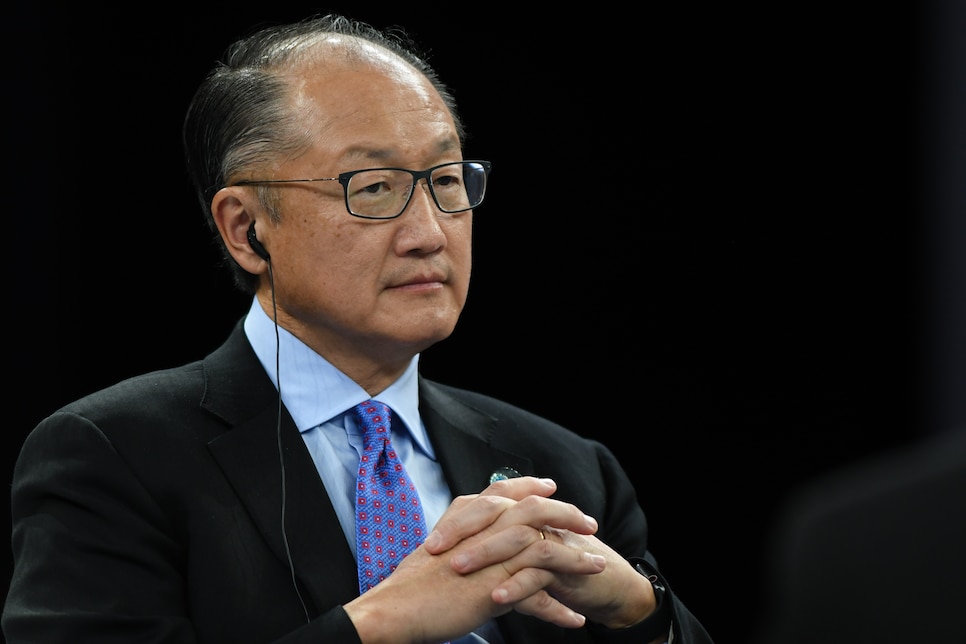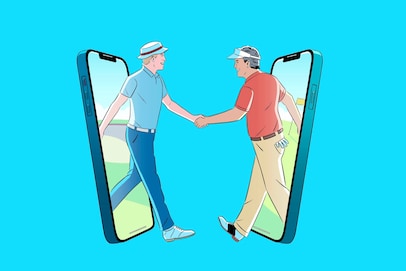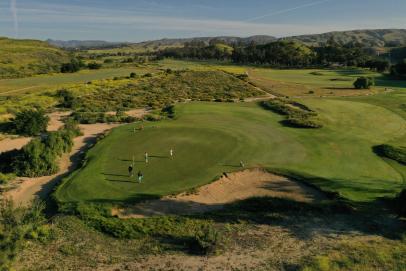My unlikeliest golf friend you need to meet – Australian Golf Digest

- by Admin
- October 2, 2024

I have the unlikeliest golf friend that you need to meet because a round of golf with him will change your life—or at least inspire you to look at the world differently.
Jim Yong Kim was born in 1959 in Korea, one of the poorest countries in the world at the time. His father was a dentist, and when Jim was 5 years old, his family moved to Muscatine, Iowa, right next to a golf course. That’s where most good stories begin. He started playing at nine years old and got down to scratch. “I loved the game, just crazy about it,” he says.
I’ll have to cut short his resume, but to give you an idea, he was president of his high school class, quarterback of his football team, point guard on his basketball team. He went to Iowa, Brown and Harvard; got degrees in medicine and anthropology; founded Partners in Health with Paul Farmer and saved millions of lives in Africa, Haiti and Peru through tuberculosis and HIV treatments. There’s a movie about what they did called “Bending the Arc.” He earned a McArthur Genius Fellowship and served as president of Dartmouth College. “His personal story exemplifies the great diversity of our country and the fact that anyone can make it as long as they’re willing to work hard and look out for others,” said President Obama when he successfully nominated Jim for the presidency of the World Bank (2012-2019). He’s now chancellor of the University of Global Health Equity in Rwanda, and his golf handicap fluctuates between 3 and 5.
“Everything about golf I find interesting,” he says. “I watch it all the time. I think about it. I’m a tinkerer. I try all the training aids. You know they don’t all help, but the hopefulness of getting better is what I love about golf. I’m a physician. I’ve focused my entire life on trying to help the poorest people in the poorest countries. But also at heart, I’m a competitor and this game is the only thing I can still compete at now. There are so many angles of how you control your mind, get your body in shape, the social opportunity to meet people; everything about it I find compelling.”
Jim’s latest initiative is in the field of mental health. I reached out to him when Grayson Murray took his own life during the Charles Schwab Challenge on the PGA Tour this year. (Jim Nantz told me it was the hardest sporting event he’d ever covered: “We just wanted it to end,” he said.) Other professional golfers like Matthew Wolff, Lexi Thompson and Bubba Watson have been increasingly open about their mental health struggles, no athlete more than seven-time Olympic gold medalist Simone Biles. Jim pointed me to a groundbreaking book by Robert Putnam in 2000 called Bowling Alone: The Collapse and Revival of American Community, which details how disconnected we’ve become from friends, family, and democratic structures.
Jim Yong Kim at the Paris Peace Forum in 2018
NurPhoto
MORE: How much golf is too much golf? Let’s find out
“One of the biggest reasons we have such mental health problems,” says Jim, “is people spend so much time on their smartphones and especially on social media. Experiments have proven if you take away smartphones in schools, anxiety and depression levels drop dramatically. Social media is especially toxic for young people. So golf is a great way to get off your phones, have real social interaction and get a healthy dose of sunlight—what has been called ‘ecotherapy.’”
“Another downside of modern culture is the way myopia (nearsightedness) has gone up. Fifty years ago, the level of myopia was about 25 percent in the U.S. Today it’s 42 percent. In Singapore, China and Japan, the rate of myopia in high school graduates is over 80 percent and in Korea 96 percent of 19-year-old men are myopic. According to experts, these high rates of myopia are likely due to heavy exposure to electronic devices at a young age and less exposure to outdoor sunlight. [Maybe another good reason to limit the use of smartphones and apps on the golf course—it’s our four hours of tranquility.] Golf is, in so many ways, an antidote to the problems we’re seeing with social isolation and loneliness, both physical and mental. Depression is the largest cause of lost productivity in any workplace. Did you know that if you’re lonely, it shortens your life expectancy as much as smoking 15 cigarettes a day?”
Jim says what’s getting better is that people are willing to talk about it. In the U.S. there are more than 700 million therapeutic interventions every year. Still, not everyone can get an appointment with a professional therapist, and it’s expensive. He again cites South Korea as having the highest suicide rate of all major countries with 25 to 35 percent of Koreans suffering from depression and only 2 or 3 percent getting treated because it’s so stigmatized. Suicide is the second leading cause of death among Americans ages 10 to 14 and 25 to 34, and for those ages 15 to 24, it’s third. Those should be unacceptable statistics.
Jim has become an advocate for what’s called “psychological first aid.” It starts with the simple question: Are you OK? The World Health Organization has a protocol teaching young people how to ask the right questions, normalize conversation about mental health and know when to escalate the interactions to a professional. Jim’s goal is to bring to all colleges and universities a training system that’s similar to the way students are taught about alcohol abuse or sexual assault.
“If we can get one or two key schools to get really serious about suicide prevention and teach all their students psychological first aid, my hope is that everyone else will want to follow,” he says. “There was no greater stigma than HIV when there was no treatment available, and then everything changed after we witnessed the ‘Lazarus effect’ of highly effective HIV medicines. Mental health has always been one of the most stigmatized illnesses, and while the treatments are not as powerful as the medicines for HIV, there are many newer, more effective therapies that just aren’t getting to the people who need them. We can do better and prevent the kind of suffering that Grayson Murray experienced.”
“Golf is, in so many ways, the antidote to the problems we’re seeing with social isolation and loneliness, both physical and mental.”
Golfers support many worthy charities and noble causes, but the unique nature of our game gives us opportunity and resources to become a beachhead in the fight against mental illness. Golf should stake out a claim to be part of the solution by talking openly about the issue, providing support to those who need it and by introducing programs like psychological first aid so that no one will be missed. “Please honor Grayson by being kind to one another,” his parents said.
“It feels like HIV back in the early 2000s when we were fighting to get treatment to people in poor countries, especially Africa,” Jim says. “In mental health we need better treatments and better systems to deliver them, but there is so much we can do right now to recognize the signs of depression and suicidality and get people the help they need. Isn’t it worth doing everything we can to listen to Grayson’s parents and prevent more tragedies?”
Obama has a nickname for Jim—he calls him, “Driver Off the Deck”—for his aggressive proclivity to hit driver from the fairway to reach par 5s in two. If there’s a golfer who can pull off this shot, it’s the extraordinary Jim Yong Kim.
More From Golf Digest  Golf Digest Logo Tour Pro’s Little Helper: Does nicotine create a competitive advantage?
Golf Digest Logo Tour Pro’s Little Helper: Does nicotine create a competitive advantage?  Golf Digest Logo Examining the new way to get onto any private course
Golf Digest Logo Examining the new way to get onto any private course  Golf + Mental Health Golf’s mental-health benefits are not just the ones you think
Golf + Mental Health Golf’s mental-health benefits are not just the ones you think
This article was originally published on golfdigest.com
The Latest News
-
December 27, 2024Paying tribute to those golf lost in 2024 – Australian Golf Digest
-
December 27, 2024Don’t like pills? Here’s an alternative pain-management treatment to consider for your golf aches and pains – Australian Golf Digest
-
December 27, 2024Charley Hull shares grueling Christmas workout, puts all of us to shame – Australian Golf Digest
-
December 27, 2024Ryan Ruffels’ pro career hasn’t matched high expectations. He’s hoping YouTube can help boost a comeback – Australian Golf Digest
-
December 27, 2024‘Not about Virat Kohli or India’ – Former Australia coach Justin Langer slams media’s witch-hunt after being a past victim himself | Sporting News India





